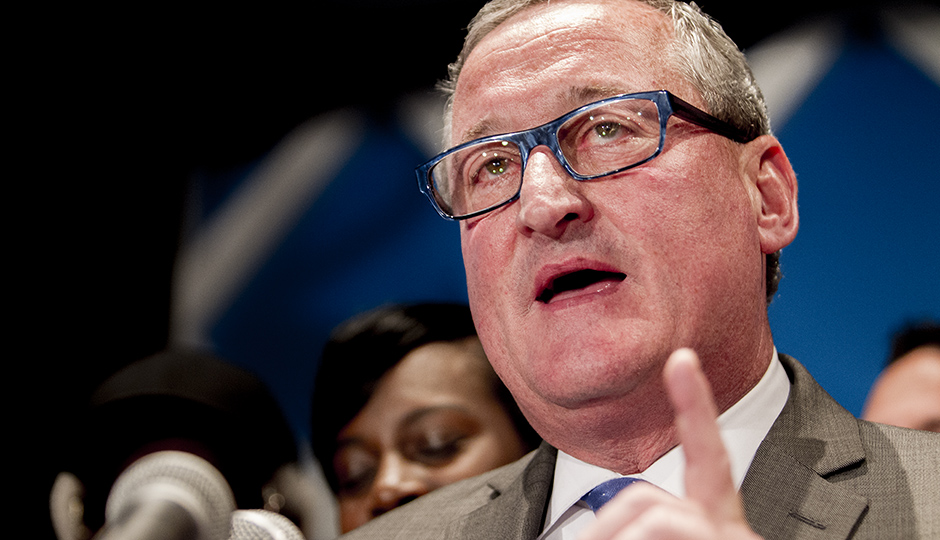NBC10 Calls Off Mayoral Debate Because of Jim Kenney’s “Unreasonable Demands”
The outcome of Philadelphia’s 2015 mayoral general election is virtually predetermined, as it is in most years. With the Democratic Party enjoying a 7-to-1 voter registration edge over the GOP, Democratic nominee Jim Kenney is expected to trounce Republican Melissa Murray-Bailey in November. And so it barely seems like an election is happening right now.
But one of the very few times in which mayoral general elections in Philly actually feel like elections is during the televised debates. There will be one fewer of those this year, though, thanks to the Kenney campaign’s “unreasonable demands,” according to NBC10.
The station said it has called off its debate because the Kenney campaign submitted a list of requests that would have threatened its journalistic standards. As Philly.com’s Ryan Briggs reports:
The campaign had submitted a six-page “memorandum of understanding” to the station, containing more than 60 prerequisites for the debate. The document dictated everything from camerawork, the number and size of dressing rooms each campaign would be assigned, and how many bottles of water each candidate would receive (two, for the record).
The Kenney campaign said that the document was intended to keep focus on “the issues” and that other television stations had agreed to the requirements. Both campaigns had signed off on the agreement.
However, in emails obtained by Philly.com, Anzio Williams, NBC10 vice president of news, argues that the memorandum was so controlling that agreeing to it “jeopardizes the integrity of the debate and the standards of the journalistic organizations participating.”
NBC10 station managers notified both campaigns that, in their view, the demands were excessive, citing a specific restriction on camerawork at the debate — that there would be no “cut-aways” to reactions of a candidate while an opposing candidate was answering a question.
A source at the station also told Philly.com that they “had never seen anything” like it in more than a dozen similar debates, and Williams called the demands “unreasonable.”
A few quick thoughts:
- Philly.com wrote that Kenney’s campaign spokeswoman said “that the purpose of the memorandum of understanding was to set standards for general election debates after a hodgepodge schedule of candidate events during the Democratic primary that ‘ranged in quality and format.'” There were a loooot of mayoral forums in the primary campaign, and it’s certainly true that some of them were not that useful or illuminating. But that is largely because there were just so many of the events, which led to a good deal of repetition and made the candidates so comfortable with each other that they barely acted like they were competing during them. That is simply not an issue in the general election, however.
- Kenney’s demands do seem excessive, especially given his overwhelming advantage in the mayoral campaign. As noted earlier, registered Democrats far outnumber Republicans in Philly. In addition to that, Murray-Bailey has very little name recognition and very little money, making the TV debates something of a formality. Given how few people will likely be swayed by the debates, what would possess the Kenney campaign to make literally dozens and dozens of demands?
- What would a Mayor Kenney’s relationship with the press be like? As a Councilman, Kenney was extremely open with reporters and essentially acted as his own press secretary. He also frequently criticized Mayor Michael Nutter for being too secretive. When Kenney became a mayoral candidate, his interactions with the press became more formalized, but that’s to be expected. I personally haven’t found his campaign to be “unreasonable” with the news media. But this story does make one wonder about what’s to come.
Read the rest of Philly.com’s story — and the Kenney campaign’s full defense of its memorandum — here.
